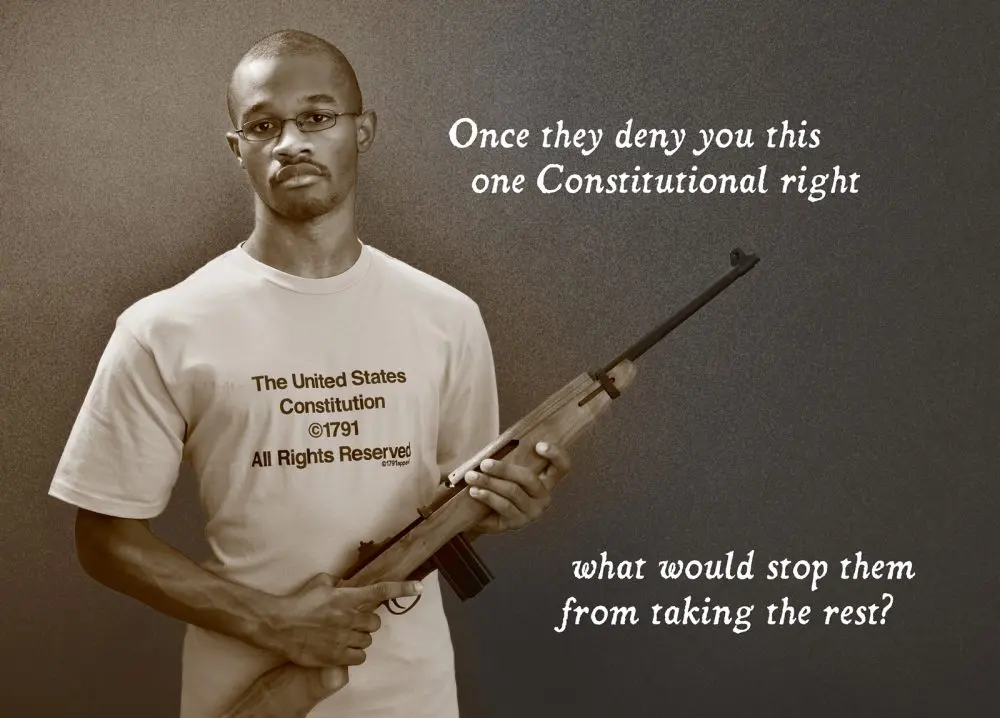 IN July, Massachusetts Attorney General Maura Healey announced a “crackdown,” effective immediately, on so-called “assault weapons.”
IN July, Massachusetts Attorney General Maura Healey announced a “crackdown,” effective immediately, on so-called “assault weapons.”
Firearms that had for decades been deemed legal even under the state’s ban of semi-automatic detachable magazine-fed rifles with certain “military features” like barrel shrouds and flash suppressors would now suddenly be illegal even without such features, despite no new law having passed, and no modification made to the existing law.
Healey argues that when gun manufacturers released new models, these without the offending “military features” that the law specifies as being what makes the weapons illegal in the first place, they simply offered “copycat” guns in the place of the previous models, in violation of a different provision of the same law.
The “logic” of this rationale has numerous problems, perhaps chief among them the question of what is the point of naming barrel shrouds, collapsing or folding stocks, bayonet lugs, etc, as banned features for semiautomatic detachable magazine-fed rifles, if the absence of those features makes no difference to a gun’s legal status?
If those features were not listed as a means of informing manufacturers of how they could produce firearms compliant with the state’s law, why list them at all? When the law was passed in 1998, it was widely understood that the inclusion of those features on such rifles was what made them “copycats” of the named banned firearms (such as Colt’s AR-15).
Ironically, in arguing that those features have little or nothing to do with how “lethal” a given rifle is, but are instead merely ergonomic or even cosmetic enhancements, Healey is repeating (“copycatting?”) a point made by gun rights advocates in the “assault weapon” debate for nearly 30 years. She has merely changed the perspective.
Rather than arguing that the existence of such features does nothing to make a gun more “lethal,” she is arguing that their removal does nothing to make it less so. Basically the same point, and therefore I, as a gun rights advocate who has made that point for years, can hardly fault her for it.
The problem is that the law, the foolishness of its focus on such “military features” notwithstanding, is the law she has at her disposal. For her to argue it means something other than what it says, simply because she now recognizes that what it says is illogical, is to bestow upon herself the de facto power to write the laws she enforces.
But it gets worse.
By declaring that the tens of thousands of such rifles sold in the state since the ban was enacted in 1998 (she claims 10,000 were sold in Massachusetts just last year) are illegal, she has with the stroke of a pen made criminals of tens of thousands of gun owners in the state, along with the gun dealers. She assures us she realizes that in the past, those rifles were bought and sold in good faith by people who were trying to comply with the law, and so she will not prosecute them.
How generous of her. But, um, what if she changes her mind? What if the next Attorney General isn’t such a good sport? If, after all, the sale of those firearms is a crime now, under a law enacted in 1998, then it must have been a crime all along.
There is no way for the same law to ban now what had been legal for the first 18 years of its existence. Whether she acknowledges it or not, she is calling all those people criminals and giving them no assurance of their staying out of dire legal trouble beyond her vague assurances that she will not prosecute them.
Keep in mind that so far we have not mentioned the Second Amendment or the fact that the right to keep and bear arms is a fundamental part of the human condition. That’s because even those who refuse to acknowledge that right should acknowledge Healey’s end run around the legislative process as an egregious abuse of power.
State Attorneys General often describe themselves as “the state’s top cop.” This top cop now presumes to usurp the legislature’s power to set the parameters of the laws she enforces.
Of course since there is the Second Amendment, and because it does grant Constitutional protection against infringement on the fundamental human right of the individual to keep and bear arms, the legislature is hardly blameless. If it had never slipped the leash of Constitutional limits on the power of government, no such ban would ever have been enacted, and there would be no law for Healey to rewrite to her liking.
And the citizens of the state cannot be left entirely off the hook, either. The legislature they elected passed that legislation. The governor they elected signed it into law—and the people tolerated it.
Healey’s action, ironically, may be changing that. As of this writing, Massachusetts gun owners are protesting against Healey’s “crackdown” with an enraged intensity that has prompted at least one article claiming that she has awoken “a sleeping giant.”
And keep in mind, this newly woken giant (and who isn’t cranky when first awoken?) owns a great many of the very firearms Healey and her fellow gun-ban zealots refer to as “weapons of war.” Maybe she ought to rethink this move.




